How to Select a
Portable Generator
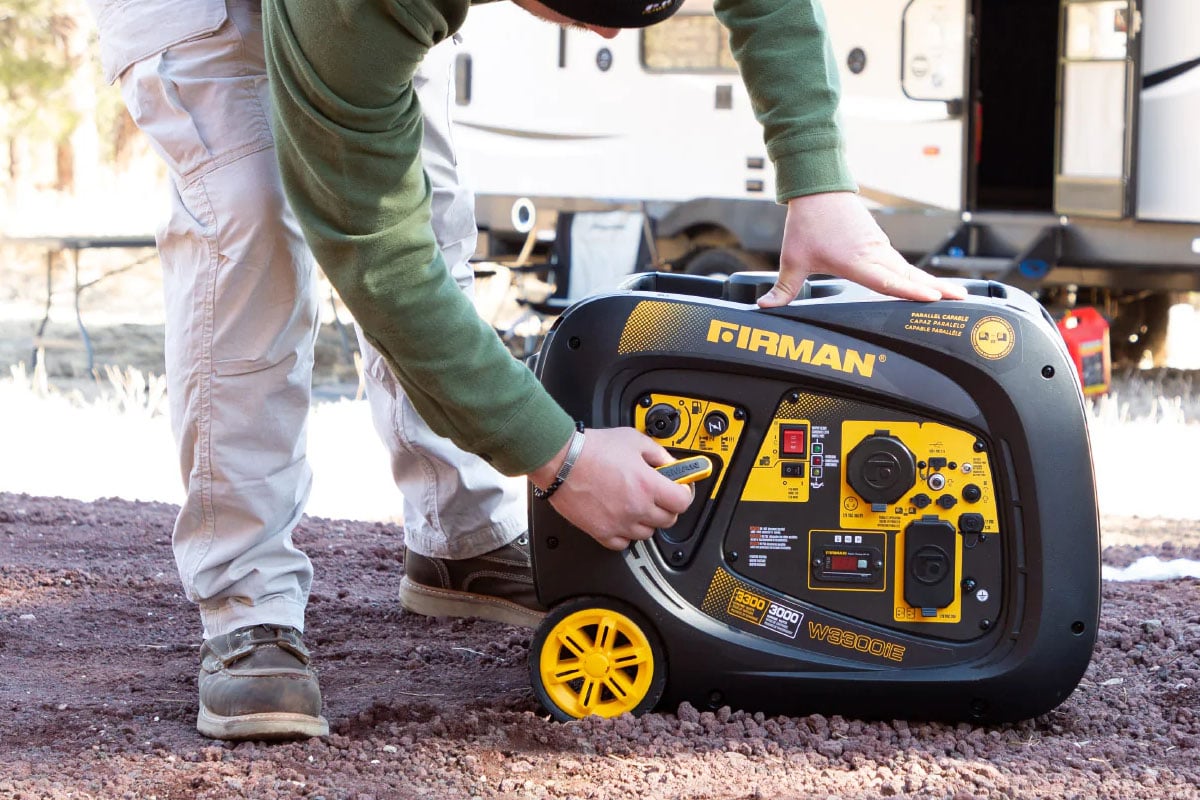
A portable generator might give you peace of mind for your next power outage, or it might allow you to bring appliances on your next camping trip. The right portable generator will give you the power – literally! – to run your day or your trip the way you see fit.
When selecting a portable generator, it’s important to choose the right type and size for your intended use. This guide will cover the different energy sources you can choose from, and what size generator can power different appliances.
As you’re deciding which generator to invest in, make sure you are clear on your goals and needs. This knowledge combined with the information in this guide will help you make the best decision and acquire the best portable generator for you.
Types of Generators
Your first decision will be what type of power you want to use for your generator. There are many considerations that go into this decision: what you’ll be using it for, how much energy you’ll need, and what kind of fuel you want to use.
Portable generators can be powered by solar power, gasoline, and diesel. You can decide which energy source is right for you based on how (and how often) you plan to use your generator.
| Solar Power | Gas | Diesel |
|---|---|---|
| Travel/Home | Travel/Home | Professional |
| Occasional Use | Occasional/Rare Use | Daily Use |
| 8W-2kW | 8W-17kW | 1-19kW |
From this table, you can see that the amount of power you need will greatly inform this decision – but it’s not the only factor. Let’s dive into each type of energy source to see the pros and cons.
Solar Powered
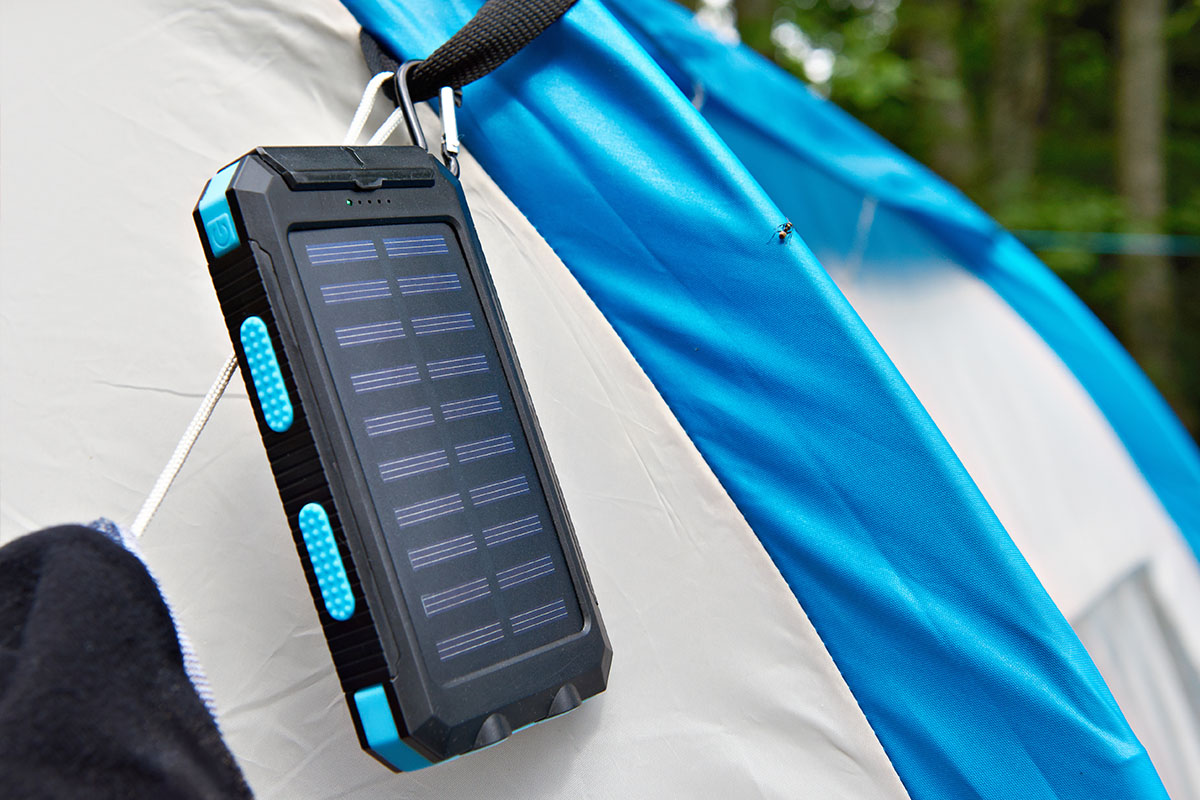
One of the major benefits of solar powered generators is that they can recharge themselves. Gas prices may go up and down, but recharging from the sun is environmentally friendly and certainly cost effective.
Solar powered generators also don’t emit nasty fumes, making them a wonderful option for camping and other remote areas. This also means you can use them indoors – which is not true of any other kind of generator.
| Pros of Solar Powered Generators | Cons of Solar Powered Generators |
|
|
Gas Powered
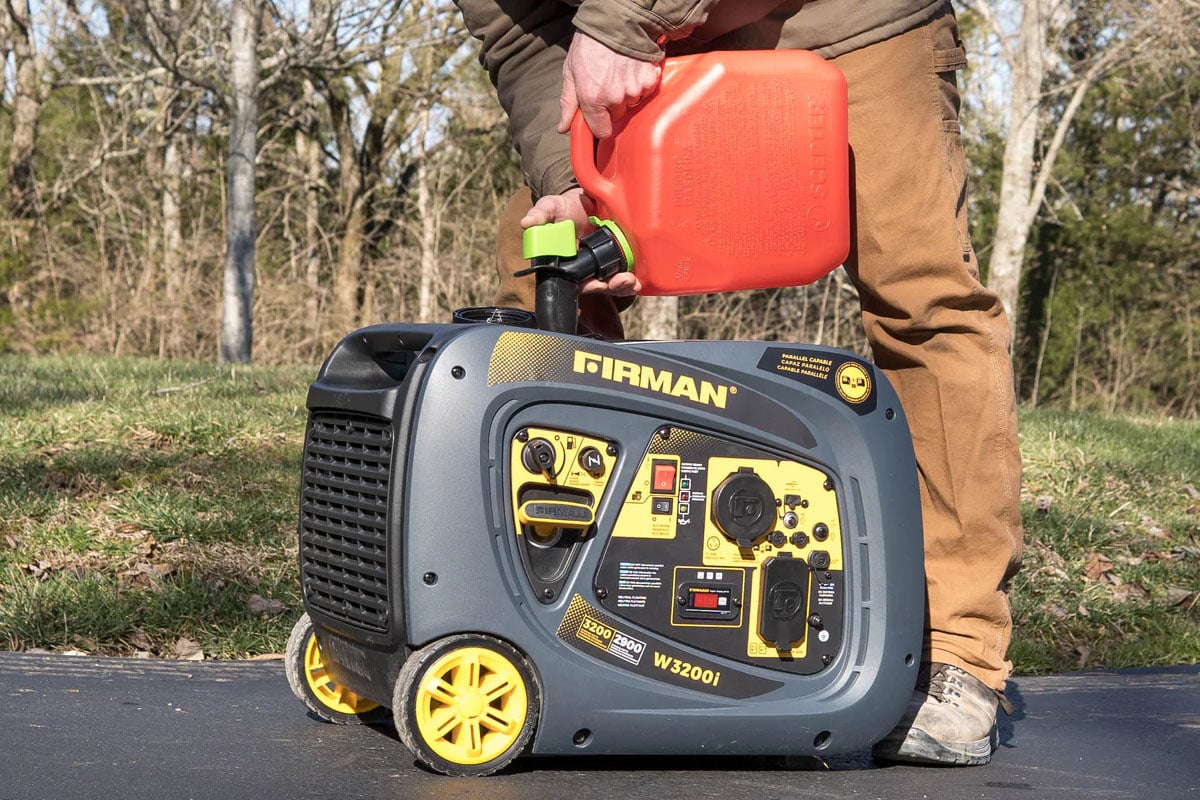
Gas powered generators basically come in two varieties: those used for recreational activities for camping, and those used for emergency backup in case of a power outage.
Those used for camping are called recreational inverter generators. These provide a bit more power than solar powered generators, but still emit clean energy. They’re usually quiet enough for most campsite regulations.
If you’re looking for solutions to help you through power outages, then a larger gas-powered emergency generator is the way to go.
| Pros of Recreational Inverters | Cons of Recreational Inverters |
|
|
| Pros of Emergency Backup Generators | Cons of Emergency Backup Generators |
|
|
Diesel Generators
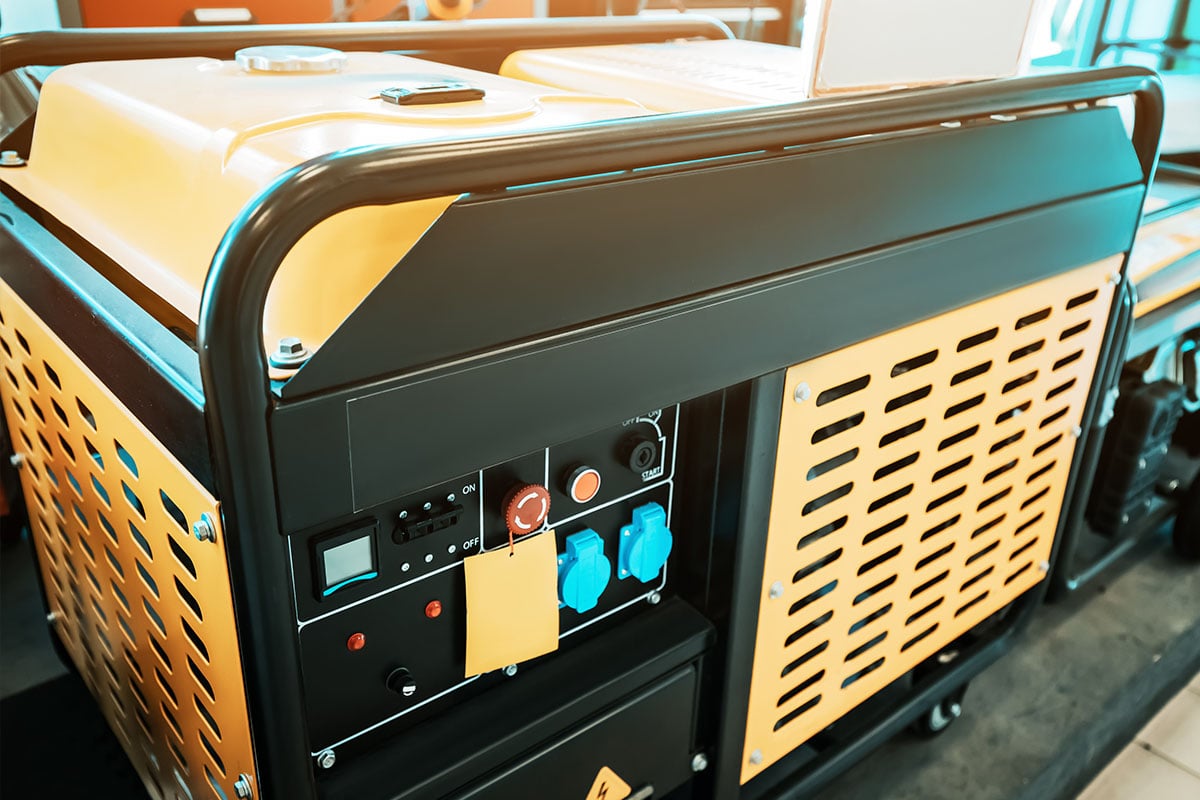
If your job requires a regular portable generator, diesel is still the way to go. This is for people who need a professional grade, long-running generator that can power a major appliance like a food truck.
When you’re looking for a portable diesel generator for professional use, you need to make sure it has features that can support the appliances you’ll be using. Make sure to investigate what all your generator offers before making your purchase.
| Pros of Diesel Generators | Cons of Diesel Generators |
|
|
What Size Generator Do I Need?
When purchasing a generator, you want to make sure it can power whatever you’re hoping to power. Particularly if you’re on the fence between similar options such as a solar and gas powered recreational generator, you’ll want to check your appliances to see how many watts you really need.
Determining Your Generator Needs
If you know exactly what appliances you’ll be using your generator to power, then the most dependable way to purchase a portable generator is to directly determine how many watts you need.
Here’s a step by step guide for figuring out what your exact power needs are.
- Determine which appliances you wish to power with your generator.
- Determine which of these appliances will need to be powered at the same time.
- Compile the running watt requirements for each item.
- Add up the running watt requirements for any items that need to be powered at the same time.
- This is your minimum wattage requirement for your generator.
Typical Wattage Requirements
You can also estimate your power needs with typical wattage requirements for various appliances. These include:
| Appliance | Watt Requirement |
|---|---|
| Coffee Maker | 900-1200 |
| Personal Computer | 270 |
| Microwave | 750-1100 |
| Radio | 70-400 |
| Television | 65-110 |
| Refrigerator/Freezer | 800-1600 |
| Cell Phone Charger | 25 |
| Electric Grill | 1650 |
| Electric Water Heater | 4000 |
| Dishwasher | 700-1500 |
| Central AC | 3000-7500 |
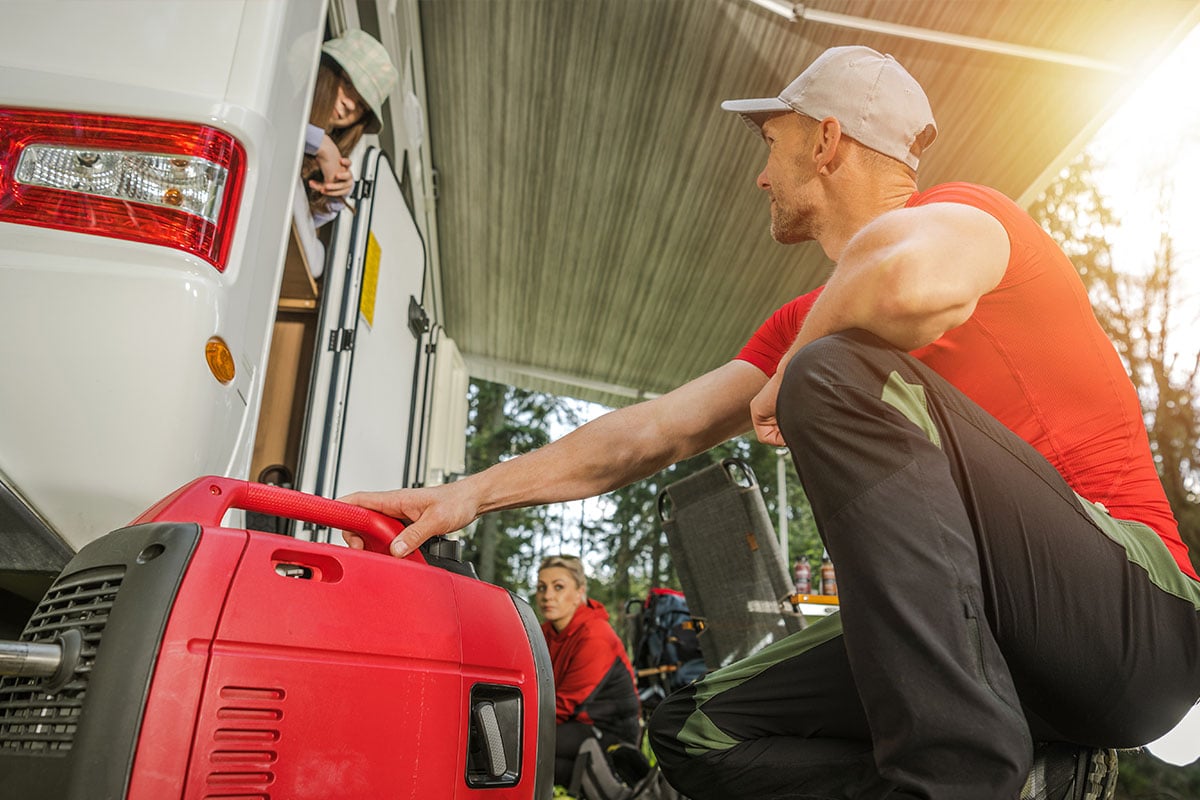
While generators will vary based on the model, remember that different types of generators generally offer different wattages. The following power systems can usually power these appliances:
| Solar Power | 8W-2kW | Coffee maker, microwave, television, cell phone, personal computer, lights, mini fans |
| Gas (camping) | 8W-6kW | Small appliances as above, with more plugged in at a time |
| Gas (emergency backup) | 1-17kW | Air conditioning |
| Diesel (professional) | 1-19kW | Large home appliances, food truck, etc |
Choosing a Wattage for Emergency Backup Generators
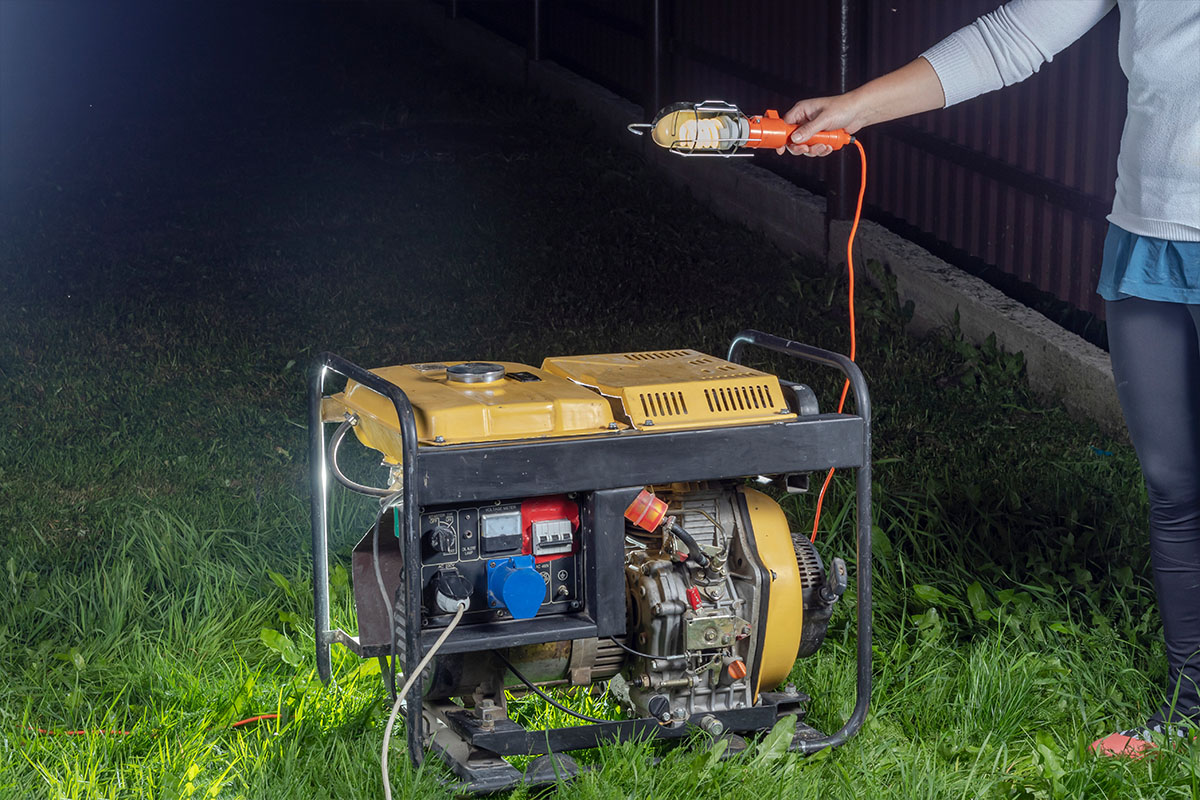
If you’re planning to get a portable generator that can help you get through power outages, there are some additional considerations to keep in mind.
If you frequently lose power, or you lose power for long periods of time, you’ll want a serious backup emergency generator. This will keep your house cool and your food fresh during a summer thunderstorm – or keep you warm and able to take hot showers during a snowstorm.
However, if you rarely lose power or it’s just for up to a few hours at a time, you may be able to do without your major appliances. In this case, you might want a smaller solar powered generator that can just power a light, your cell phone, or your work station.
| Frequent Outages | Portable emergency backup |
| Occasional Outages | Portable emergency backup |
| Rare/Brief Outages | Recreational inverter/solar powered |
Even a small generator can give you peace of mind to keep working or stay in communication with loved ones when you do experience power outages. But if you need your home to keep functioning basically as is, you’ll need to invest in a larger, more robust option.
Important Generator Features
The primary features of a generator are the wattage and the type of fuel, as we’ve discussed already. Once you’ve made your major decisions about this, it’s time to make sure your top choice generator has some key features.
Running Time
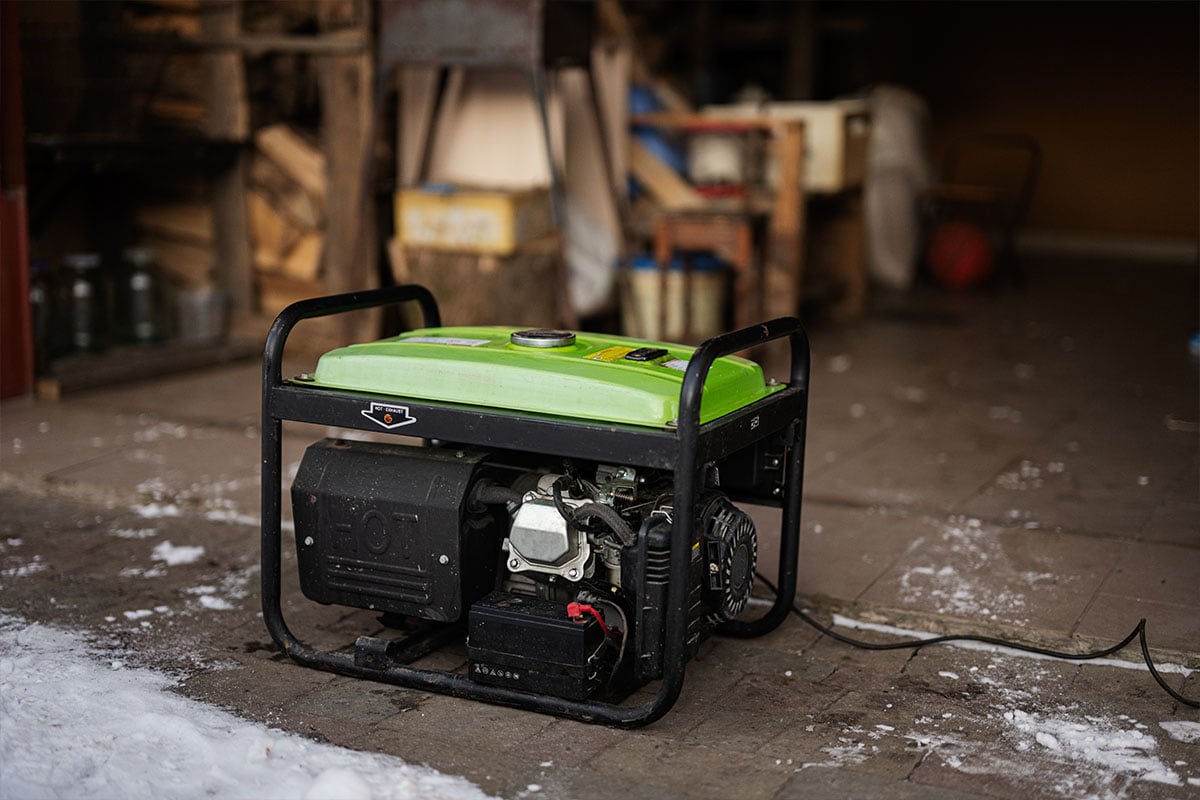
You’ll want to make sure your generator can stay on for however long you need it to. Each generator should estimate how long it will be able to run at half-load and at full-load.
If you are able to keep additional fuel nearby, you can always refuel your generator. But how much gasoline are you going to keep in your garage? Or, if you’re using solar or battery powered generators, that recharge will take time.
If you’re using a generator for camping, consider how long you’ll need your appliances plugged in over your entire stay. If you’re shopping for an emergency backup generator, you’ll want at least 10 hours on half-load so that you can get through a full night without power.
Outlets
A generator isn’t much use if you can’t plug your appliances into it! If you want to plug in four appliances at the same time, don’t forget to check that your generator has at least four outlets.
You’ll also want to check what type of outlets your generator has against the type of plugs on your appliances. For example, if you’ll be running larger appliances, you’ll likely need a 30amp locking-type outlet.
Generator Cord Set
A generator cord set is basically a heavy-duty extension cord that will give you four standard outlets. This will help you manage your extension cords so your generator doesn’t become a mess as everyone tries to plug in.
Carrying Assistance
Make sure to investigate how you’re expected to carry your generator. Some smaller generators might be easy to pick up and carry, but others might be a little bit of a process even though they’re called “portable.” Many generators come with handles and wheels – check to see if your top pick accounts for this.
Conclusion
A portable generator can be a great way to bring your favorite appliances into the outdoors, or prepare for inclement weather and power outages. If you’re thinking about a portable generator, odds are you have a clear vision of what you’re trying to accomplish – and this goal will ultimately determine what kind of generator you need.
Make sure you do your homework ahead of time to get the right wattage for your specific needs, and then follow the safety instructions in the manual to keep any fumes away from enclosed areas. A generator can be a great investment, and now you have the tools to choose the perfect one for you.